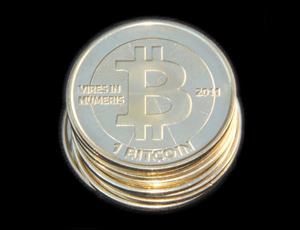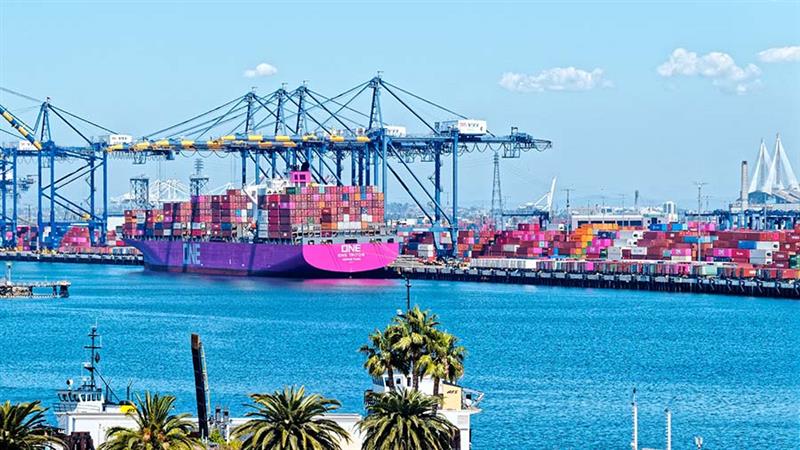Bitcoin Exchange BTC China Resumes RMB-Based Deposits
 SHANGHAI – Bobby Lee, CEO of the Bitcoin exchange BTC China, has announced that customers are once again able to purchase Bitcoin by depositing RMB directly into the company’s corporate bank account.
SHANGHAI – Bobby Lee, CEO of the Bitcoin exchange BTC China, has announced that customers are once again able to purchase Bitcoin by depositing RMB directly into the company’s corporate bank account.
The decision by BTC China comes after the exchange stopped accepting RMB deposits in response to a Dec. 5 memo from the People’s Bank of China warning national financial institutions not to trade in Bitcoin.
Created in 2009, Bitcoins are a peer-to-peer virtual form of currency able to be bought or sold on online exchanges. While the value of a single Bitcoin is very volatile, the total value of Bitcoins worldwide is currently estimated at between US$7.5 and US$10 billion.
RELATED: How Bitcoins Stack Up Across Asia
The December 5, 2013 memo from the People’s Bank of China (PBC) instructed national institutions not to participate in the Bitcoin trade, and named the end of the Lunar Year (January 31, 2014) as the deadline by which Chinese banks and payment processors were required to cease all dealings in the virtual currency.
The memo from the PBC and five other ministries warned against using a currency not issued by the central monetary authority in order to protect the property rights and interests of the public, protect the legal status of the RMB, prevent money laundering and maintain financial stability.
The official memo from the People’s Bank of China can be found here. Further clarification of the memo during the subsequent PBC press conference can be found here.
After studying the central bank’s memo and other rules concerning BTC’s activities, BTC China made the decision to resume RMB-based purchases on Thursday – the day before the PBC’s January 31 deadline.
“We are definitely in compliance with the Dec. 5 memo, but the government and the government agencies can change the rules anytime in the future. So, we are going to take a wait-and-see approach,” Lee told the Wall Street Journal on Friday.
“Previously, we judged doing this as not being viable; however, we have since changed our stance. We looked again at the guidance issued in December and we think it’s reasonable for us to accept customer deposits via our corporate bank account. The fact that the PBC said exchanges need to register with the MIIT [Ministry of Industry and Information Technology] essentially means it recognizes exchanges as a business category and BTC China as a legitimate business,” Lee continued.
According to Lee, the timing of the decision was strategically planned to coincide with the beginning of the Chinese New Year so as to avoid drawing too much attention.
“It is going to be slow in terms of trading value, so we just wanted to make sure the system is running smoothly, that there is not too much pressure and that it doesn’t pick up too much attention,” Lee said.
Despite BTC China’s hope for a quiet re-launch, the international price of Bitcoin began to rise as early as late Thursday as news of the move reached U.S. traders, and Chinese traders began to make their way back to the BCT China exchange.
After resuming RMB-based deposits, BTC China also launched a new Maker-Taker program by rewarding multiple buy/sell offers that increased liquidity (‘makers’) with a monetary reward of RMB1000 while charging those taking offers and removing market liquidity (‘takers’) a fee of 0.3 percent. This offer will last until February 15th, and is good until a user accrues RMB100,000 in rewards.
In China, Bitcoin has become increasingly popular due to its ability to allow citizens on the mainland to circumvent government regulations on the movement of capital across national borders, and many believe that this attraction initially drove the rapid climb in Bitcoin value.
Despite BTC China’s return to the Bitcoin market, it appears Taobao and third-party payment platforms Alipay, Tenpay and Yeepay will continue to abstain from Bitcoin transactions in response to the PBC’s memo.
Despite mainland China’s uneasy relationship with the virtual currency, the Hong Kong Special Administrative Region is set to receive the world’s second Bitcoin ATM from Robocoin this month.
Dezan Shira & Associates is a specialist foreign direct investment practice, providing corporate establishment, business advisory, tax advisory and compliance, accounting, payroll, due diligence and financial review services to multinationals investing in emerging Asia. Since its establishment in 1992, the firm has grown into one of Asia’s most versatile full-service consultancies with operational offices across China, Hong Kong, India, Singapore and Vietnam as well as liaison offices in Italy and the United States.
For further details or to contact the firm, please email asia@dezshira.com, visit www.dezshira.com, or download the company brochure.
You can stay up to date with the latest business and investment trends across Asia by subscribing to Asia Briefing’s complimentary update service featuring news, commentary, guides, and multimedia resources.
Related Reading
 Payroll Processing Across Asia
Payroll Processing Across Asia
In this issue of Asia Briefing Magazine, we provide a country-by-country introduction to how payroll and social insurance systems work in China, Hong Kong, Vietnam, India and Singapore. We also compare three distinct models companies use to manage their payroll across various countries with external vendors, and explain the differences among three main models: country-by-country, managed, and integrated models while highlighting some benefits and drawbacks of each.
 Annual Audit and Compliance in China
Annual Audit and Compliance in China
In this China Briefing issue we will discuss annual compliance requirements for foreign-invested enterprises, including wholly-foreign owned enterprises, joint ventures and foreign-invested commercial enterprises, as well as the less demanding requirements for representative offices. Tax compliance is especially important because an FIE can only repatriate profits to foreign investors after the Chinese tax bureaus are satisfied that all applicable taxes have been paid up. We will also highlight the key tax and legal changes that will significantly influence the way companies do business in China in 2014.
- Previous Article Recap of Key 2013 Corporate Income Tax Regulatory Updates
- Next Article China’s Relationship with the Contentious U.S. FATCA



























